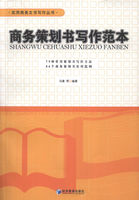IT is not only impossible for a man to decide, in any given period, of the progress of his existence, or what utility or consequence he may be to society; but without the faculty of prescience, it is still more impracticable for him to divine what purposes he may be intended to serve in the many mysterious revolations of futurity. How far his mortal may be connected with his immortal life, must rest with him who has the sole disposal of it. But who told him that his load of misery was too much to bear, that he was not able to sustain it? or that his merciful father would not proportionate his sufferings to his abilities? How does he know how short-lived the pressure of incumbent sorrow may prove? It becomes not him to prescribe to his maker, or because his evils are enormous, to conclude they must be permanent. Rash man! thy heart is in the hand of heaven, and he who tempers the wind to the shorn lamb, may either lighten the burthen that oppresses thee, or blunt the edge of that sensibility, from which it derives the greatest poignancy. What medicine is to the wounds of the body, that resignation is to those of the soul. Be not deficient in this virtue, and life will never prescribe a duty you cannot perform, or inflict a pang which you cannot bear. Resignation changes the grizzly aspect of affliction, turns sickness into health, and converts the gloomy forebodings of despair into the grateful presentiments of hope. Besides, the most insignificant instruments are sometimes, in the hands of eternal providence, employed in bringing about the most general and beneficent revolutions. It is by making weakness thus subservient to power, evil to good, and pain to pleasure, that he who governs the world illustrates his sovereinty and omnipotence. Till, then, thou art able to comprehend the whole mysterious system of every possible existence, till thou art certain that thy life is totally insignificant, till thou art convinced it is not in the might of infinite power to render thee serviceable either to thyself or others, counteract not the benignity of providence by suicide, or, in this manner, by the blackest of all treasons, betray thy trust, and wage, at fearful odds, hostility against the very means and author of thy being.
ONE very obvious consequence arising from suicide, which none of its advocates appear to have foreseen, and which places it in a light exceedingly gross and shocking, is, that it supposes every man capable, not only of destroying himself, but of delegating the power of committing murder to another. That which he may do himself, he may commission any one to do for him. On this supposition, no law, human or divine, could impeach the shedding of innocent blood. And on what principle, of right or expediency, admit that which produces such a train of the most horrid and detestable consequences?
(5) THE preceding note is, perhaps, the most audacious part in the whole of this very extraordinary performance. In our holy religion it is expressly declared that no murderer hath eternal life abiding in him; that murderers shall in no wise inherit the kingdom of God, and that it is the prerogative of heaven alone to kill and make alive. It is a fundamental doctrine in the gospel, that, except ye repent, ye shall all likewise perish. And how are they to perform their duty, who, in the instant of dying, contract a guilt, which renders it indispensible. But this horrid supposition is repugnant to the whole genius of revelation, which inculcates every virtue that can possibly administer to our present and future welfare. It inforces obedience and resignation to the righteous government of God. It inspires and produces those very dispositions which it recommends.
All its doctrines, exhortations, and duties, are formed to elevate the mind, to raise the affections, to regulate the passions, and to purge the heart of whatever is hostile to happiness in this or another life. This impious slander on the christian faith is the obvious consequence of the grossest inattention to its nature and tendency. It is calculated chiefly to make us happy. And what happy man was ever yet chargeable with suicide? In short, we may as well say, that, because the physician does not expressly prohibit certain diseases in his prescriptions, the very diseases are authenticated by the remedies devised, on purpose to counteract them. {52}
IMMORTALITY OF THE SOUL.
(1) The ingenuity of Scepticism has been long admired, but here the author boldly outdoes all his former out-doings. Much has been said against the authenticity of religion, on the supposition that the evidence to which she appeals, is not either sufficiently general or intelligible to the bulk of mankind. But surely an argument is not conclusive in one case, and inconclusive in another. Admit this reasoning against revelation to be valid, and you must also admit it against our author's hypothesis. There never at least was an objection started, that could, in the remotest degree, affect the truths of the gospel, more intricate, metaphysical, and abstracted, than that by which our essayest would destroy the popular doctrine of the soul's immortality.
How many live and die in this salutary conviction, to whom these refined speculations must forever remain as unintelligible as if they had never been formed! It is a sentiment so congenial to the heart of man, that few of the species would chuse to exist without it.















